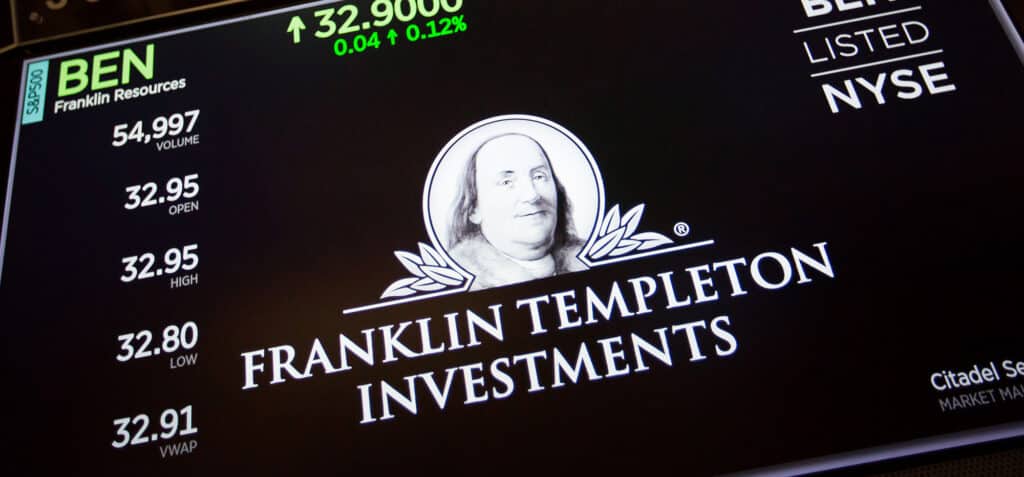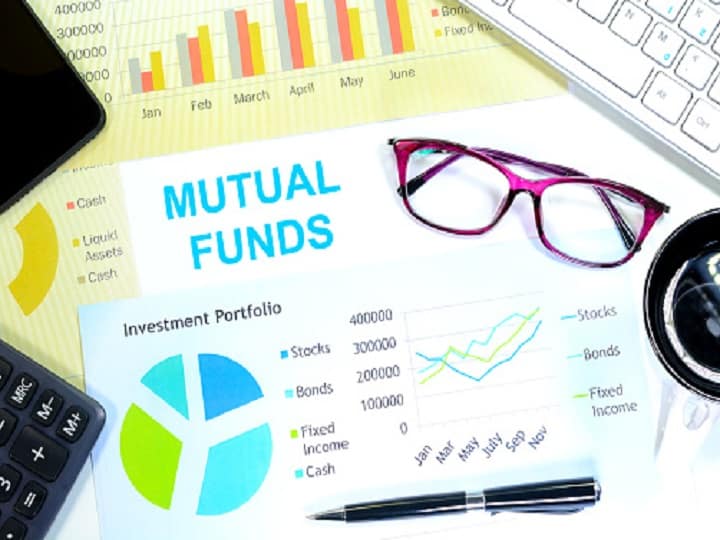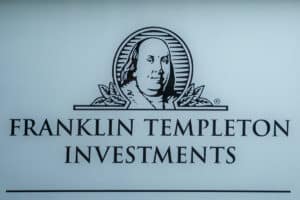Franklin Templeton Technology Fund Review – that will be the topic of todays article.
Explore if Franklin Templeton Technology Fund is worth investing in, alongside the RL360 Quantum Savings Plan.
Nothing written here should be considered as financial advice, nor a solicitation to invest.
For any questions, or if you are looking to invest as an expat, you can contact me using this form, or via the WhatsApp function below.
Introduction
Franklin Templeton has grown from being recognized as one of the best small businesses in America to a leading global investment management organization. We offer clients a valuable perspective shaped by our seventy years of experience, investment expertise, and growing global reach.

The company was founded in 1947 in New York by Rupert H. Johnson, Sr., who ran a successful retail brokerage firm from a Wall Street office. He named the company after the US founding father, Benjamin Franklin because Franklin embodied the ideas of thrift and discretion when it came to saving and investing. The company’s first line of mutual funds, Franklin Custodian Funds, was a series of conservatively managed stock and bond funds intended for most investors.
Franklin Resources Inc. – American multinational holding company, which together with its subsidiaries is called Franklin Templeton; is a global investment company founded in New York in 1947 under the name Franklin Distributors, Inc.
It is listed on the New York Stock Exchange under the ticker BEN, after Benjamin Franklin, after whom the company is named and who admired founder Rupert Johnson Sr. In 1973, the company’s headquarters moved from New York to San Mateo, California. As of October 12, 2020, Franklin Templeton held $ 1.4 trillion in assets under management (AUM) on behalf of private, professional, and institutional investors.
Mutual funds and ETFs
Franklin Templeton has over 455 different open-ended mutual funds and 7 closed-end funds in the family of funds. These include 27 state and federal tax-free funds, an investment area pioneered by Franklin.
Prominent funds in the fund family include the Templeton Growth Fund, Inc. (opened 1954, $ 8.8 billion in AUM, Mutual Equity Fund (opened 1949, $ 7.9 billion in assets), And Mutual Discovery Fund. (opened 1992 ., assets worth $ 14.5 billion) and Templeton Growth (euros) Fund A (assets worth $ 6.2 billion).
The Franklin Income Fund (FKINX, $ 61.1 billion in assets) Is a Morningstar mutual fund categorized as “conservative allocation” and “big / security boxes.” for 60 years Franklin’s Income Fund consists primarily of stocks and bonds that pay dividends (2%).
Franklin Templeton launched his first ETF in 2013 and the platform now includes over 55 active, smart beta, and passively managed ETFs in the U.S. The company’s U.S. ETF platform had approximately $ 9.7 billion under management as of November 30, 2021 USA.

Franklin Technology Fund
Franklin Technology Fund is a mutual fund, that seeks to achieve capital gains by investing at least two-thirds of its assets in equity securities of companies expected to benefit from the development, promotion, and use of technology.
Mutual fund investors own shares in a company that buys shares in other companies (or bonds, or other securities). Mutual fund investors do not directly own the shares of the companies acquired by the fund, but they are equally involved in the profits or losses of the fund’s total investments – hence the term “mutual” in mutual funds.
A mutual fund is an investment that brings together investors’ money to buy stocks, bonds, and other assets. A mutual fund seeks to build a more diversified portfolio than the average investor could on their own. In mutual funds, professional fund managers buy securities for you.
Anyways you have to remember that all investments come with a certain amount of risk and you can potentially lose money by investing in a mutual fund. But diversification is often inherent in mutual funds, which means that by investing in one, you spread risk across multiple companies or industries. On the other hand, investing in individual stocks or other investments often comes with increased risk.
Time is a critical element in adding value to your investment. If you need your money in five years or less, you may not have enough time to overcome the inevitable peaks and valleys of the market in order to make a profit. If you need your money in two years and the market drops, you may have to take that money at a loss. Generally speaking, mutual funds – especially mutual funds – should be viewed as a long-term investments.
Why you should consider Franklin Technology Fund?
Access to stocks of technology. Franklin uses a broader definition of “technology”: companies that create, implement, or commercialize new technologies that are used to improve productivity or create new services.
Proven investment process. The investment style is a combination of bottom-up and top-down exploration. Managers begin with a high-level analysis of a specific sector, identify attractive subsectors, and then focus research on those segments before using bottom-up analysis to determine the most attractive stocks.
All the benefits of a first-class in-house research team. Franklin has one of the largest stock research groups in the United States. In addition, the team is based in San Mateo, in the heart of Silicon Valley.
What are the main risks?
The value of the shares in the Fund and the income received from it can both decrease and increase, and investors may not receive back the entire amount invested. Exchange rate fluctuations can also affect performance. Fluctuations in exchange rates can affect the value of foreign investments.
The fund invests primarily in equity securities of technology companies around the world. Such securities are historically subject to significant price fluctuations, which could suddenly occur due to market or company-specific factors. Usually, the Fund’s performance can be significantly different over relatively short periods of time.
Other significant risks include:
- Stock risk: Stock prices may be influenced by factors such as economic, political, market and issuer-specific changes. Such changes could adversely affect the share price regardless of the company’s performance.
- Securities lending risk: the risk that the default or insolvency of the borrower of the securities provided by the Fund may result in losses if the collateral received sells less than the value of the securities provided.
For complete information on all risks applicable to this Fund, please refer to the “Risk Considerations” section of the current Franklin Templeton Investment Funds Prospectus.
Franklin Templeton speaking in 2020
Franklin Templeton invests in a variety of sectors that are sensitive, cyclical, and defensive. Of the sensitive sectors, most of the investment has been in the technology sector. Among the cyclical sectors, the family of funds invested the most in the financial services sector, while among the defense sectors, it invested heavily in health care.
The Technology Select SPDR (XLK) sector grew 37.2% over the past year and was the most profitable sector among the 11 sectors of the S&P 500.
Meanwhile, on February 2, 2021, two Franklin Templeton mutual funds were awarded the 2020 Raging Bull Certificate. While the Franklin US Opportunities Fund has been awarded the best (FSCA-approved) General Offshore Fund for US Equities in the past three years, Templeton China Fund has been recognized as the best (FSCA-approved) General Offshore Fund for Far East Equities in the same period.
How to invest in mutual funds?

If you’re ready to invest in mutual funds, you can contact us by this form and send you application. But here are some tips on how to invest in mutual funds:
1. Decide whether it should be active or passive
Your first choice is perhaps the most important: do you want to outperform the market or try to imitate it? It’s also a fairly straightforward choice: one approach is more expensive than the other, often without better results.
Actively managed funds are run by professionals who research what is in the market and shop to get around the market. While some fund managers can achieve this in the short term, it has proven difficult to outperform the market in the long term and on a regular basis.
Passive investing is a safer approach and is growing in popularity largely due to the simplicity of the process and the results it produces. Passive investing often entails lower fees than active investing.
2. Calculate your budget
Think about your budget in two ways to determine how to proceed:
How much do mutual funds cost? There is one attractive feature about mutual funds: once you reach the minimum investment amount, you can often choose how much money you want to invest.
A lot of minimum mutual fund amounts can range from $ 500 to $ 2,000. But in case you choose a fund with a minimum amount of $ 500 and invest that amount, you can deposit as much or less as you want. In addition to the required initial investment, ask yourself how much money is comfortable for you to invest, and then choose the amount.
3. Learn about the fees of mutual funds.
Regardless of whether you choose active or passive funds, the company will charge an annual fund management fee and other fund management costs expressed as a percentage of the money you have invested, known as the expense ratio.
The cost ratio of a fund is not always easy to determine in advance, but it is worth the effort to understand because these fees can eat up your bottom line over time.
Pained by financial indecision? Want to invest with Adam?
Adam is an internationally recognised author on financial matters with over 830million answer views on Quora, a widely sold book on Amazon, and a contributor on Forbes.



